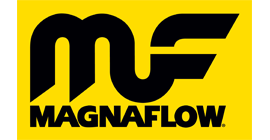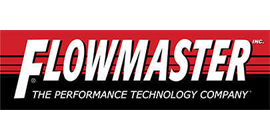- Mon 8:00AM - 5:00PM
- Fri 8:00AM - 5:00PM
- Tue 8:00AM - 5:00PM
- Sat Closed
- Wed 8:00AM - 5:00PM
- Sun Closed
- Thu 8:00AM - 5:00PM
- Office is closed from 12p-1p
Undercar Services
Keep your vehicle in peak condition by allowing us to provide our under the vehicle services that
let you get around town safely.
Anti-Lock Brake System (ABS)
Anti-lock brakes prevent wheel lock-up when rapidly decelerating by automatically modulating
the brake pressure during an emergency stop. With this system in place, the wheels are able to
maintain traction with the road when braking. Failure of the ABS can increase the risk of multiple
vehicle crashes and run-off road crashes causing you and/or others serious harm. To avoid this,
have your anti-lock brake system checked and/or repaired by experts regularly so that the ABS
light stays off.
Brake System Flush
Brake fluid is hygroscopic, which means it absorbs moisture. The absorbed moisture lowers the
fluid's boiling point and corrodes the lines and cylinders. With the boiling point lowered, the
brake fluid could boil during braking which makes you lose braking ability. Although this is an
extreme scenario, it does happen in heavy braking. To reduce and counter the effects of the
absorbed moisture, we recommend that you have a brake flush done periodically. A brake flush
involves the replacement of the used contaminated fluid with clean fresh fluid.
Brakes
The brakes are a mechanical device for slowing or stopping a vehicle, usually by means of
friction. In short, the brakes inhibit your vehicle's motion, it lets you stop whenever and wherever
you choose. Brakes are one of the most important parts of a motor vehicle, without them you
would not be able to stop the vehicle and that can lead to serious injury for yourself and others.
Caliper
The brake caliper houses your brake pads and fits around the motor like a clamp, pressing the
pads against the rotor when you brake. A problem with the caliper could cause uneven braking
making your vehicle slide forward when braking and can even cause your vehicle to slide out of
control in bad weather conditions.
Rotors
In a disc brake system, rotors are attached to your vehicle's wheels. When the brake pads grip
the rotor, they bring both the rotor and the wheels to a stop. However, over time the friction can
cause grooves and cracks to appear, but resurfacing your rotors can get you back to a
"like-new" condition, reducing squealing and wobbling.
Chassis
A chassis is the vehicle's internal framework that supports the body and other components such
as the wheels, engine, driveshaft, differential, and suspension. A weak or
damaged chassis will translate to a weak car. To keep a strong reliable vehicle, have the
chassis checked for defects.
Driveline
If the driveline fails then the vehicle would not be able to move since the energy
cannot be transferred from the engine to the wheel axles. Frequently get your driveline
inspected and serviced.
Shocks
Shocks (or shock absorbers) are mechanical devices designed to smooth out rough roads. The
shocks convert kinetic energy to another form of energy in order to function. When your shocks
are working properly they reduce the effect of traveling over rough ground, leading to improved
ride quality and easier vehicle handling. If the shocks develop a problem, driving on poorly
leveled roads becomes unpleasant and the vehicle may sway when turning.
Struts
Similar to shocks, your vehicle's struts provide a dampening effect as you travel over the road's
surface. By absorbing the shock of the road, struts allow passengers to ride in a car without
constant uncomfortable motion. Struts work a bit differently than shocks in that they provide
structural support for your vehicle's suspension, which means they support your vehicle's
weight, unlike shocks which only regulate the speed at which the weight is transferred. Struts
usually last around 50,000 to 60,000 miles because the damping characteristics of the parts
gradually deteriorate over time.
To learn more about our Undercar services, call us at 530-223-6640 or request a quote by clicking below:
Request Quote
Anti-Lock Brake System (ABS)
Anti-lock brakes prevent wheel lock-up when rapidly decelerating by automatically modulating
the brake pressure during an emergency stop. With this system in place, the wheels are able to
maintain traction with the road when braking. Failure of the ABS can increase the risk of multiple
vehicle crashes and run-off road crashes causing you and/or others serious harm. To avoid this,
have your anti-lock brake system checked and/or repaired by experts regularly so that the ABS
light stays off.
Brake System Flush
Brake fluid is hygroscopic, which means it absorbs moisture. The absorbed moisture lowers the
fluid's boiling point and corrodes the lines and cylinders. With the boiling point lowered, the
brake fluid could boil during braking which makes you lose braking ability. Although this is an
extreme scenario, it does happen in heavy braking. To reduce and counter the effects of the
absorbed moisture, we recommend that you have a brake flush done periodically. A brake flush
involves the replacement of the used contaminated fluid with clean fresh fluid.
Brakes
The brakes are a mechanical device for slowing or stopping a vehicle, usually by means of
friction. In short, the brakes inhibit your vehicle's motion, it lets you stop whenever and wherever
you choose. Brakes are one of the most important parts of a motor vehicle, without them you
would not be able to stop the vehicle and that can lead to serious injury for yourself and others.
Caliper
The brake caliper houses your brake pads and fits around the motor like a clamp, pressing the
pads against the rotor when you brake. A problem with the caliper could cause uneven braking
making your vehicle slide forward when braking and can even cause your vehicle to slide out of
control in bad weather conditions.
Rotors
In a disc brake system, rotors are attached to your vehicle's wheels. When the brake pads grip
the rotor, they bring both the rotor and the wheels to a stop. However, over time the friction can
cause grooves and cracks to appear, but resurfacing your rotors can get you back to a
"like-new" condition, reducing squealing and wobbling.
Chassis
A chassis is the vehicle's internal framework that supports the body and other components such
as the wheels, engine, driveshaft, differential, and suspension. A weak or
damaged chassis will translate to a weak car. To keep a strong reliable vehicle, have the
chassis checked for defects.
Driveline
If the driveline fails then the vehicle would not be able to move since the energy
cannot be transferred from the engine to the wheel axles. Frequently get your driveline
inspected and serviced.
Shocks
Shocks (or shock absorbers) are mechanical devices designed to smooth out rough roads. The
shocks convert kinetic energy to another form of energy in order to function. When your shocks
are working properly they reduce the effect of traveling over rough ground, leading to improved
ride quality and easier vehicle handling. If the shocks develop a problem, driving on poorly
leveled roads becomes unpleasant and the vehicle may sway when turning.
Struts
Similar to shocks, your vehicle's struts provide a dampening effect as you travel over the road's
surface. By absorbing the shock of the road, struts allow passengers to ride in a car without
constant uncomfortable motion. Struts work a bit differently than shocks in that they provide
structural support for your vehicle's suspension, which means they support your vehicle's
weight, unlike shocks which only regulate the speed at which the weight is transferred. Struts
usually last around 50,000 to 60,000 miles because the damping characteristics of the parts
gradually deteriorate over time.
Suspension FAQs
How often should shocks be replaced?
Experts recommend that shocks be replaced at 50,000-100,000 miles. If you are a more aggressive driver or frequently drive on rough roads, they will wear out faster. Shocks don't go out all at once, they deteriorate slowly over time. If you are noticing problems with handling, making smooth turns or ride smoothness have one of the professionals at Major Muffler & Auto Repair inspect your shocks.
Are struts difficult to replace?
Replacing struts is simple and fast for a professional. Replacing your front struts yourself is not recommended, especially if you need a new complete strut assembly kit. When you get your truck's struts replaced you also need to have the front-end alignment checked. Ask the professionals at Major Muffler & Auto Repair to replace your struts and we will complete the work quickly and easily.
What is the difference between shocks and struts?
Shocks and struts are both parts of a vehicle's suspension system. However, each has a very specific job. Your vehicle has either shocks or struts. You cannot replace your shocks with struts and vice versa. Shock absorbers are hydraulic components that help minimize movement generated by the vehicle's springs. These springs absorb some of the jolts you might feel from uneven or damaged roads. Struts are structural components of certain vehicles' steering and suspension systems. They usually consist of a spring and a shock absorber. Struts are designed to be much stronger than shocks since they are designed for vehicles that carry heavy loads.
Is it necessary to get an alignment after strut replacement?
Major Muffler & Auto Repair recommends performing an alignment anytime shocks, struts or other steering and suspension components are replaced. Getting your vehicle's alignment within factory specifications ensures optimal tire wear and helps prolong the life of your tires.
What happens if I only replace one strut or shock?
If you replace only one shock or strut, it will create poor handling when changing lanes or driving over bumps. If your car is new, replacing only one strut or shock absorber may be ok since the opposite side shock is not worn out yet. Generally, Major Muffler & Auto Repair recommends replacing both shocks or struts.
To learn more about our Undercar services, call us at 530-223-6640 or request a quote by clicking below:
Request Quote











